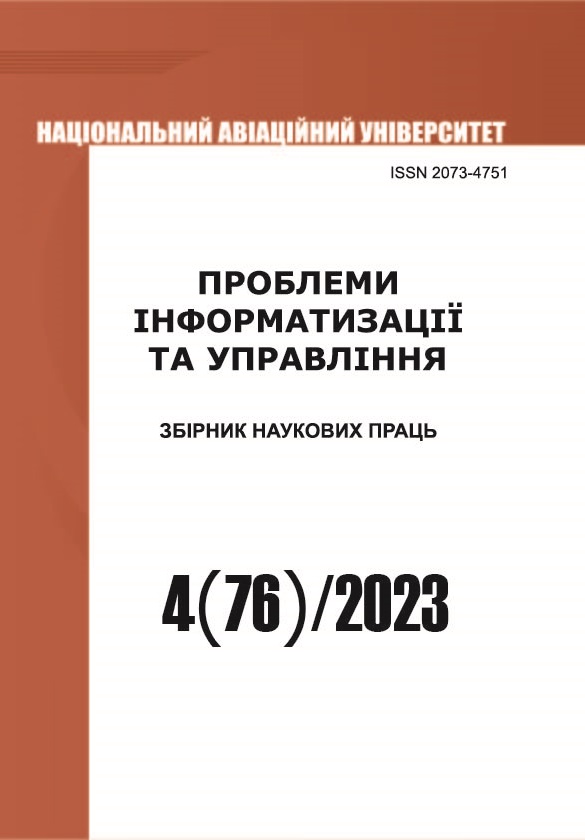Method for cryptographically strict identification of remote abonents based on pseudorandom sequences generators
DOI:
https://doi.org/10.18372/2073-4751.76.18244Keywords:
Zero-Knowledge Identification, cryptographically strong identification, pseudo-random bit sequences, middle attacks, protection of remote interactionAbstract
The article proposes a method for cryptographically strong remote abonents identification, which is based on the irreversibility properties of cryptographic generators of pseudo-random sequences. This made it possible to integrate, within a single technological solution, a cryptographically strong user identification before a session, permanent mutual authentication during a session, and also provide the possibility of streaming encryption of data exchange between the user and the system. It is shown that the use of the proposed method allows to reduce the identification time and increase the security against middle attacks.
References
Schneier B. Applied Cryptography. Protocols. Algorithms and Source codes in C. Ed.John Wiley, 1996. 758 p.
Mu Han, Yin Zhikun, Chen Pengzhou, Zhang Xing, Ma Shidian. Zero-knowledge identity authentication for internet of vehicles: Improvement and application. PLoS ONE. 2020. V. 15. No. 9. P. 217–247.
Alfred Menezes, Paul C. van Oorschot, and Scott A. Vanstone. Handbook of Applied Cryptography. CRC Press, 2001. 780 p.
Conti M., Dragoni N., Lesyk V. A Survey of Man in the Middle Attacks. IEEE Communications Surveys and Tutorials. 2016. Vol. 18. No. 3. P. 2027–2051.
Kittichokenai K., Care G. Secret Key-based Identification and Authentication with a Privacy Constraint. IEEE Trans. Inf. Theory. 2016. V. 62. No. 11. P. 6189–6203.
Захариудакис Лефтерис. Метод быстрой аутентификации удаленных пользователей на основе концепции “нулевых знаний”. Наукові записки Українського науково-дослідного інституту зв’язку. 2017. № 1(45). С. 109–117.
Feige U., Fiat A., Shamir A. Zero knowledge proofs of identity. Journal of Cryptology. 1988. V. 1. No. 2. P. 77–94.
Schnorr C.P. Method for Identification Subscribers and for Generating and Verificating Electronic Signatures in data Exchange System. US Patent #4995,083.19. 1991.
Guillou L.C., Quisquater J.J. A Practical Zero-Knowledge Protocol Fitted to Security Microprocessor Minimizing Both Transmission and Memore. Proceeding of Advances of Cryptology – Eurocrypt-88 / Davos, Switzerland, 1988. P.123–128.
Rafaël Del Pino. Efficient lattice-based zero-knowledge proofs and applications. Cryptography and Security. Université Paris sciences et lettres, 2018. 110 p.
Stavroulakis P., Markovskyi O., Bardis N., Doucas N. Efficient Zero Knowledge identification based on one way Boolean transformations. IEEE Globecom Workshops / Houston, USA, 2011. P. 275–280.
Lamport L. Password Authentication with Insecure Communication. Communications of the ACM. 1981. V. 24. No. 11. P. 770–772.
Bardis N., Doucas N., Markovskyi O. Zero-Knowledge Identification Method Based on Block Ciphers. Proceeding of 2017 International Conference on Control, Artificial Intelligence, Robotic & Optimization(ICCAIRO) / Prague, Czech Republic, 2017. P. 307–311.
Soo Yun Hwang, Gi Yoon Parkm Dae Ho Kim, Kyong Son Jhang. Efficient Implementation of a Pseudorandom Sequence Generator for High-Speed Data Communications. ETRI Journal. 2010. V. 32. No. 2. P. 222–229.
Downloads
Published
Issue
Section
License
Автори, які публікуються у цьому журналі, погоджуються з наступними умовами:- Автори залишають за собою право на авторство своєї роботи та передають журналу право першої публікації цієї роботи на умовах ліцензії Creative Commons Attribution License, котра дозволяє іншим особам вільно розповсюджувати опубліковану роботу з обов'язковим посиланням на авторів оригінальної роботи та першу публікацію роботи у цьому журналі.
- Автори мають право укладати самостійні додаткові угоди щодо неексклюзивного розповсюдження роботи у тому вигляді, в якому вона була опублікована цим журналом (наприклад, розміщувати роботу в електронному сховищі установи або публікувати у складі монографії), за умови збереження посилання на першу публікацію роботи у цьому журналі.
- Політика журналу дозволяє і заохочує розміщення авторами в мережі Інтернет (наприклад, у сховищах установ або на особистих веб-сайтах) рукопису роботи, як до подання цього рукопису до редакції, так і під час його редакційного опрацювання, оскільки це сприяє виникненню продуктивної наукової дискусії та позитивно позначається на оперативності та динаміці цитування опублікованої роботи (див. The Effect of Open Access).


